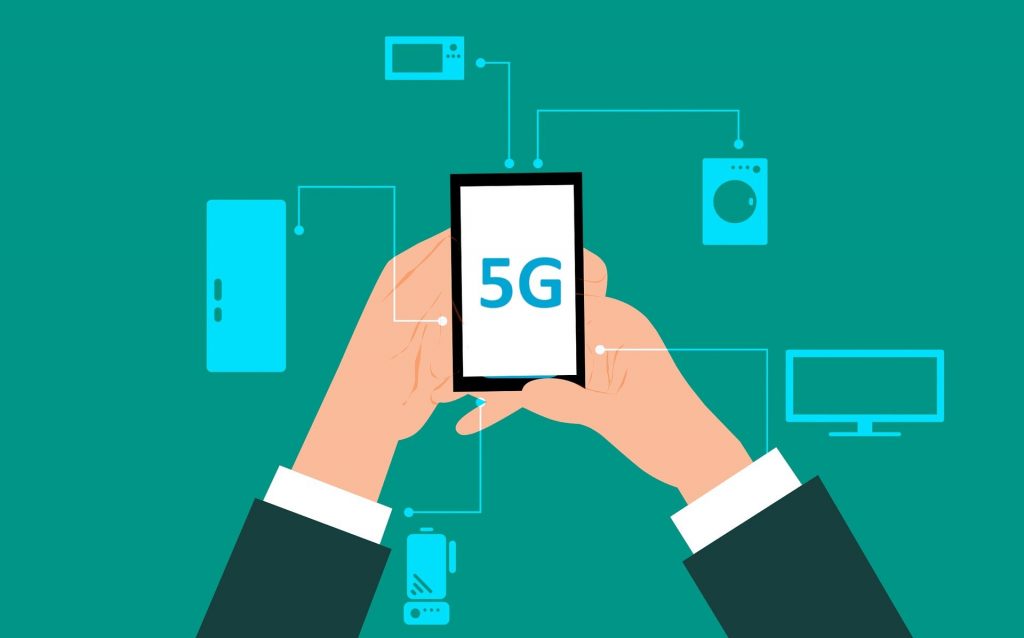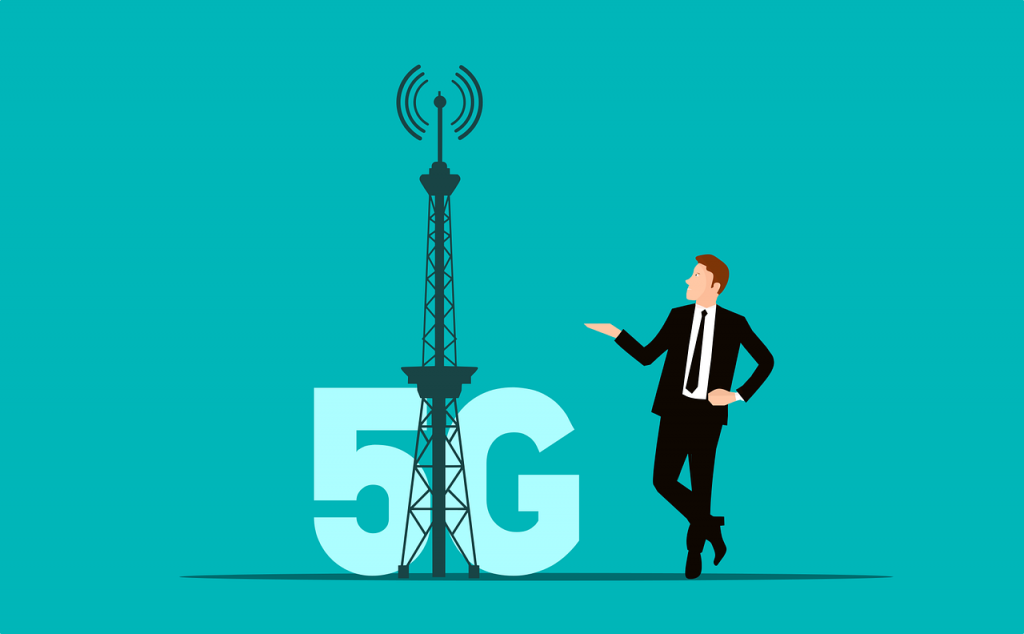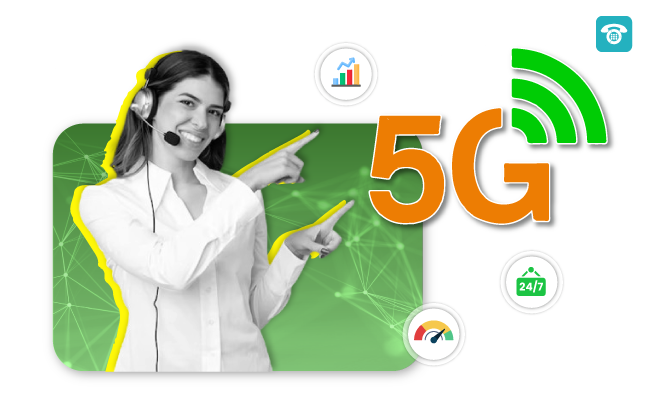The 5G technology for business is receiving extensive media coverage across the board, as with any new, highly anticipated technology. And rightfully so, this technology will be genuinely transformative and herald in the next networking era.
But what makes 5G unique? What are the potential implications for you, your organization, and the structure of work in the future?
On October 1, Indian Prime Minister Narendra Modi introduced 5G phone services. The Prime Minister on Saturday officially unveiled 5G in a few cities, and over the following couple of years, it would gradually expand to the entire nation.
According to the Ministry of Communications, the introduction of 5G services is the result of years of meticulous management. A fruitful 5G spectrum auction was recently held, and telecom service operators were given 51,236 MHz with a gross value of 1,50,173 crore.
Networking and 5G

5G has been referred to as the vital component of the new economy since it holds the promise of a speedier and more networked future. Although the battle for 5G has undoubtedly merited its position in the headlines; it has also given rise to unclear assertions, overstated, and occasionally factually inaccurate.
The next level of wireless communication is what 5G is fundamentally about. Similar to how 3G and 4G LTE gave rise to the smartphone era and gave us access to streaming music and movies at our fingertips; 5G represents a significant advancement over what we now utilize.
Identical to present cellular networks, 5G will have base stations, also known as antennas, dispersed throughout dense cities to serve devices within range of each antenna. Contrary to 4G LTE, however, these base stations would use considerably higher wavelengths and much lower power, thus a lot more antennas will be needed in a given area to ensure complete coverage.
This is because the 5G spectrum will need to use far higher frequencies for transmission in order to achieve the vastly increased bandwidth.
What effects will 5G have on your Business?
For those who use their computers to work or watch content, 5G for business will be fantastic. However, what will it imply for your organization?
5G will have an impact on all internet-dependent businesses. Businesses will now have more alternatives for their IT operations thanks to 5G, which is essentially a mobile broadband technology. You will have an additional means of interconnecting servers, systems, and endpoints.

If your company employs enterprise software, runs cloud-based apps, offers cloud-based apps, or has satellite offices, 5G for business will transform how you access and deliver information. It makes it simpler to support a distributed workforce. 5G enables you to provide superior customer service. Not just that, now, data will be available to you more quickly.
List of 10 things your business needs to know about 5G
- With the advent of 5G, mobile networks will finally completely replace wired networks, enabling companies to establish satellite offices in formerly inaccessible places. Additionally, it will speed up and improve the dependability of working while traveling from cars, trains, and flights.
- The capacity to do more with virtual reality and augmented reality, which presents their own economic potential, is projected to be the largest improvement 5G will bring to smartphones.
- New data generated by such networks presents prospects for developing AI and machine learning solutions.
- Your mobile connectivity will experience three primary enhancements owing to 5G: more simultaneous connections, lower latency for faster response, and wider bandwidth to speed up your connection.
- 5G may also bring in a surge in smart gadgets and smart sensors as it can support a larger number of gadgets.
- Businesses that use a lot of data will see the biggest improvements with 5G. Financial businesses that need a steady stream of data will have one more instrument at their disposal. More transactions will be possible in less time thanks to 5G, which will benefit stock and commodity dealers.
- Compared to 4G, 5G speeds will be 10 to 100 times quicker. Such a speed could download a full-length feature film in a couple of seconds.
- In comparison to the current 4G internet, 5G residential and commercial internet will be much simpler for carriers to deploy than installing fiber optic cable in each and every neighborhood and property.
- The majority of the reports circulating about the potential dangers of 5G tower radiation to the surroundings raise questions; but there is no scientific evidence to support them. In reality, the levels of radiation generated by 5G towers are quite modest and harmless.
- Although 5G’s commercial potential is still in its beginnings, any company that might gain from high-quality, quick streaming media will undoubtedly be impacted.

FAQs-Frequently Asked Questions
Q1. What is 5G?
Ans: Fifth-generation cellular communication is referred to as 5G. Similar to how 4G is gradually displacing 3G, 5G will fundamentally alter how we utilize the power of the internet in the future. The goal of 5G wireless technology is to give more consumers faster peak data speeds of multiple gigabits per second (Gbps), extremely low latency, high stability, vast network capacity, and a greater uniform user experience.
Q2. What internet speeds does 5G offer?
Ans: With maximum data rates of up to 20 Gigabits per second (Gbps) and regular data rates of more than 100 Megabits per second (Mbps); 5G has the potential to be much better than 4G. A 100x boost in connectivity and traffic bandwidth is what 5G is intended to enable.
Q3. Which cities/ states are 5G available in India?
Ans: The implementation of 5G services in India will proceed in stages. Initially, 5G networks would be introduced in 13 cities, including Ahmedabad, Hyderabad, Jamnagar, Kolkata, Lucknow, Bengaluru, Chandigarh, Chennai, Delhi, Gandhinagar, Gurugram, Mumbai, and Pune.
Q4. Will you need new hardware for 5G?
Ans: According to 5G requirements, one million gadgets will be connected to the wireless node per square kilometer. The radio access network (RAN) framework must change, as well as a new frequency band, in order to achieve these improved quality standards.
Q5. How much does 5G cost?
Ans: According to the Indian government, the impending launch of 5G might result in broadband speeds that are 10X quicker than those of a 4G network. The new technology’s price will undoubtedly go up. For consumers with high ARPU, that can be Rs 1,000 or more per month. For people willing to pay more for a 5G service that offers faster speeds and more content, premium options may also be provided.
Q6. Will your customers need new handsets to move to 5G?
Ans: All that you require is a smartphone that works with the 5G network.
Q7. Which businesses does 5G impact most?
Ans: The business that 5G will impact most include manufacturing, telecom industry, agriculture, healthcare, transport, education, etc.
Q8. What does 5G mean for cloud telephony?
Ans: Cloud telephony providers will be able to access enterprise mobile users quickly and effectively owing to 5G technology. Due to the increased computing power and machine-to-machine connectivity offered by 5G, access to virtualization technology via phones will become widespread. Moreover, businesses using cloud telephony will provide mobile users more capabilities and alternatives, and hotspots will speed up; giving remote workers access to cloud services even in places with poor web access.
Q9. Which ISPs/ telecom players offer 5G?
Ans: Airtel will create a 5G network on top of their existing 4G services; whereas, Jio will be the only one to offer independent 5G services.
Q10. How is 5G better than 4G?
Ans: Over 4G, 5G has a higher capacity. A 100x rise in quality of service and traffic capacity is what 5G will support. Also, compared to 4G, 5G has less latency.


